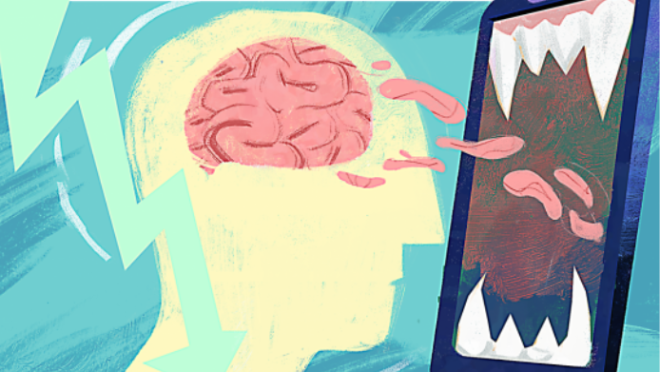How to clear brain fog and improve focus
How to clear brain fog and improve focus

When life gets busy and stress levels rise, it is not unusual to walk into a room and forget why you went there, lose your train of thought in the middle of a sentence, or struggle to stay focused on simple tasks.
After the weekend, many people also find it hard to return to study or work mode.
This cloudiness is often called brain fog. While it is not a medical condition in itself, it describes a mix of symptoms such as poor concentration, forgetfulness, and slow thinking.
Brain fog can have many causes. It may be linked to menopause or perimenopause, long Covid, and autoimmune conditions such as lupus. However, it can also appear when your mind is simply dealing with too much at once.
Medical doctor and Morning Live expert, Dr Tharaka, has shared four tips and a simple acronym to help clear the haze.
1. Be kind to yourself
Brain fog can happen to anyone. It is not a personal weakness or proof that you are unable to cope.
Often, it is simply your brain’s way of saying it is tired, stressed, or overworked.
Remember that brain fog is usually temporary. Allow yourself to slow down, hand over tasks to others, or ask for help when you need it.
If you are worried about ongoing symptoms, it is best to contact your GP.
2. Create routines
Making too many choices each day can be tiring. Having a set routine gives your day a clear rhythm and reduces mental strain.
When you know what is coming next, your brain does not waste energy asking, What am I doing today?
Morning and evening routines can help. Even simple habits, such as laying out clothes or preparing breakfast in advance, can free your mind from unnecessary decisions.
3. Take breaks
It is easy to fill your diary with back-to-back tasks, meetings, errands, and events without leaving breathing space.
But when your brain jumps constantly from one thing to another, it has no time to reset. This makes brain fog more likely.
Plan short breaks between activities, even just five to ten minutes. Use that time to stretch, sip water, step outside, or sit quietly.
Think of these breaks as mental buffers. They allow your mind to process what you have just done, release stress, and prepare for what comes next.
4. Use calendars and reminders
Trying to keep every task, deadline, and appointment in your head quickly leads to clutter and forgetfulness.
Instead, let technology help. Use calendars, planners, and reminders to free up brain space.
Set tasks to repeat automatically, such as blocking out lunch each day or adding weekly reminders for bills and household chores.
This stops your mind from constantly asking, What do I need to remember next?
The SWANS method
Alongside these daily strategies, Dr Tharaka recommends using the SWANS acronym to support brain health and sharpen focus.
- Sleep: Sleep is essential. It allows the brain to rest and store memories. Aim for seven to nine hours each night.
- Water: Around 60% of the body is water, and even mild dehydration affects focus. Keep water close and drink regularly.
- Activity: Movement increases blood flow and oxygen to the brain, which improves thinking. Go for short walks, light jogs, or stretch often.
- Nutrition: Feed your brain with whole foods rather than processed ones. Choline, found in eggs, fish, and nuts, is important for concentration.
- Stress: Long-term stress raises cortisol, which clouds the mind. Reduce it with breathing exercises, mindfulness, or enjoyable hobbies.


